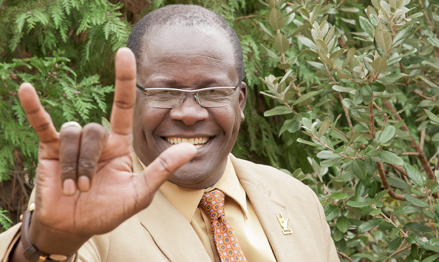Latest News Archive
Please select Category, Year, and then Month to display items
12 October 2020
|
Story Dr Cindé Greyling
|
Photo Supplied
 Exercise and nutrition can work wonders for your mental health – you don’t even have to ‘feel like’ or ‘enjoy’ moving around and eating well for it to work – it does its thing anyway.
Exercise and nutrition can work wonders for your mental health – you don’t even have to ‘feel like’ or ‘enjoy’ moving around and eating well for it to work – it does its thing anyway.
Nowadays, people talk about mental health like it is the common cold – which is good! But do you know what it really means? Being mentally healthy does not only refer to the absence of a mental illness but includes your emotional and social well-being. One would almost want to add physical well-being too, since a healthy body does indeed support a healthy mind. However, since so many people consider themselves ‘mental health experts’, some myths have been sold as truths.
Myth #1 – You are doomed.
Nope. Never. You are never doomed. There is always help. Mental-health therapies range from self-help, talk therapy, medication, to hospitalisation in some cases. Somewhere on this spectrum of treatments, there will be something that works for you. But you must be willing to get the help and do the work. For starters, exercise and nutrition can work wonders – you do not even have to ‘feel like’ or ‘enjoy’ moving around and eating well for it to work – it does its thing anyway.
Myth #2 – It won’t affect you.
It may. Research suggests that one in five people may suffer from a mental illness at some point in their lives. Being well now does not mean that it will stay that way. Biological and environmental factors both impact your mental health. Hopefully not, but at some point, you may experience an event that affects your mental health.
To remain integrated in a community is always beneficial
for anyone suffering from a mental or physical condition.
Myth #3 – Someone struggling with mental health must be left alone.
Hardly! To remain integrated in a community is always beneficial for anyone suffering from a mental or physical condition. You do not need to fix them, but to remain a friend. Continue to invite them, even if they decline. Do not judge, and do not try to understand. Just stay around.
Go and be kind to yourself, and to those around you.
National accolade for Dr Philemon Akach
2013-10-21
|
 |
|
Dr Philemon Akach
Photo: Sonia Small
21 October 2013 |
Excellence in Teaching and Learning is highly regarded at the University of the Free State, with our academics recognised on national and international platform.
Earning yet another accolade for the university, Dr Philemon Akach, Head of the Department of South African Sign Language, has been awarded a National Excellence in Teaching and Learning Award. The award by the Higher Education Learning and Teaching Association of Southern Africa (HELTASA) and Council on Higher Education (CHE), recognised Dr Akach as a “leader in the field of teaching and learning – with impact beyond the classroom and the institution.” Recognising his pioneering work within deaf education, HELTASA and CHE commend Dr Akach as an “inspirational practitioner who recognises the inclusion of the marginalised in education.”
Dr Akach is one of five recipients, selected out of a total of 22 candidates from across South Africa that will receive the award. The other winners are from the University of Cape Town, Stellenbosch University, University of KwaZulu-Natal and the University of Pretoria. The five winners will receive the awards at a gala dinner at the annual HELTASA conference, which takes place from 26 to 29 November 2013.
Dr Akach, who will retire at the end of 2014, says the national recognition is the cherry on top as he prepares to return to his home country. Kenya. “How good can it be?” “This is my life calling,” he said about the 37 years he worked within deaf education.
The academic also received an Alumni Award for Outstanding Service at the recent Kovsie Alumni Awards.
Pioneering work by Dr Akach:
- With Dr Akach steering the process, the UFS became the first university on the continent to offer Sign Language as an academic course in 1999.
- Dr Akach was part of a nine-member task team that handed over the South African Sign Language (SASL) curriculum to the Minister of Basic Education, Angie Motshekga. A member of the ministerial task team since 2009, he helped to coordinate the development of the curriculum that will soon be offered as a school subject to Grade 0–12 learners in all 42 schools for the deaf in South Africa.